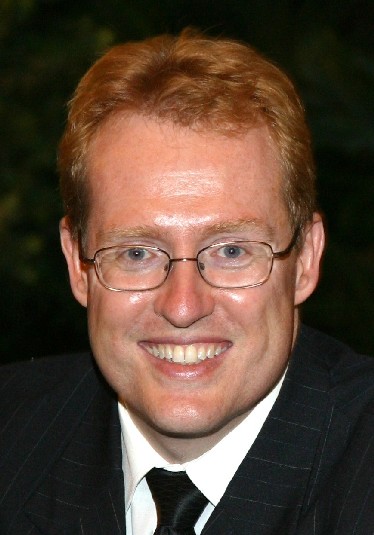
Keynote Speakers

|

|
| Douglas Schmidt | Juha-Pekka Tolvanen |
| Wednesday's keynote | Thursday's keynote |
Model Driven Development for Distributed Real-time and Embedded Systems
Douglas C. Schmidt, Vanderbilt University, USA
Wednesday, October 5, 2005
Slides from the talk.
Abstract
Despite advances in standards-based commercial-off-the-shelf (COTS) technologies, key challenges must be addressed before COTS software can be used to build mission-critical distributed real-time and embedded (DRE) systems effectively and productively. For example, developers of DRE systems continue to use ad hoc means to select and compose their applications and middleware due to the lack of formally analyzable and verifiable building block components. This talk will describe how Model Driven Development (MDD) techniques and tools can be used to specify, analyze, optimize, synthesize, validate, and deploy product-line architectures and standards-compliant middleware platforms that can be customized for the needs of next-generation DRE systems.
This talk will compare and contrast MDD and MDA approaches to model-driven development of DRE systems. It will also illustrate how MDD techniques and tools have been successfully integrated with standards-based QoS-enabled component middleware to develop product-line architectures that significantly improve the quality and productivity associated with developing next-generation mission-critical DRE systems. Concrete examples from avionics, process control, and warehouse management systems will be used to illustrate key points.
Speaker's profile
Dr. Douglas C. Schmidt is a Professor of Computer Science and Associate Chair of the Computer Science and Engineering program at Vanderbilt University. He has published over 300 technical papers and books that cover a range of research topics, including patterns, optimization techniques, and empirical analyses of software frameworks and domain-specific modeling environments that facilitate the development of distributed real-time and embedded (DRE) middleware and applications running over high-speed networks and embedded system interconnects. Dr. Schmidt has over fifteen years of experience leading the development of ACE, TAO, CIAO, and CoSMIC, which are widely used, open-source DRE middleware frameworks and MDD tools that contain a rich set of components and domain-specific languages that implement patterns and product-line architectures for high-performance DRE systems.
Domain-Specific Modeling: No one size fits all
Juha-Pekka Tolvanen, MetaCase, Finland
Thursday, October 6, 2005
Slides from the talk.
Abstract
After 10 years of UML we have still not overcome the problems of the CASE tools of the 1980's. Imposing a one-size-fits-all modeling language and generators has not significantly increased developers' productivity.
Domain-Specific Modeling (DSM) provides a viable solution for improving development productivity by moving the focus from implementation concepts to problem domain concepts. With DSM, a new modeling language is created for each problem domain, with elements representing concepts from the domain world, not the code world. The DSM language follows domain abstractions and rules, guiding developers and allowing them to perceive themselves as working directly with domain concepts.
When the domain is narrowed down to fit a single company's needs, domain-specific code generators can automatically produce full code straight from the models. Industrial experiences - in cases ranging from embedded software to B2B J2EE web sites - have consistently shown productivity increasing by a factor of 5-10.
This talk will introduce DSM and look at examples from various fields of software product development, and we explore the principles of creating DSM languages and generators.
Speaker's profile
Juha-Pekka Tolvanen is the CEO of MetaCase. He has been involved in model-driven approaches and tools, notably method engineering and metamodeling since 1991. Juha-Pekka holds a Ph.D. in computer science from the University of Jyväskylä, Finland. He has acted as a consultant world-wide for method development and has written over 50 articles in software development magazines and journals. As co-founder of the DSM Forum (www.dsmforum.org) he plays a leading role in the shift towards model-driven development.